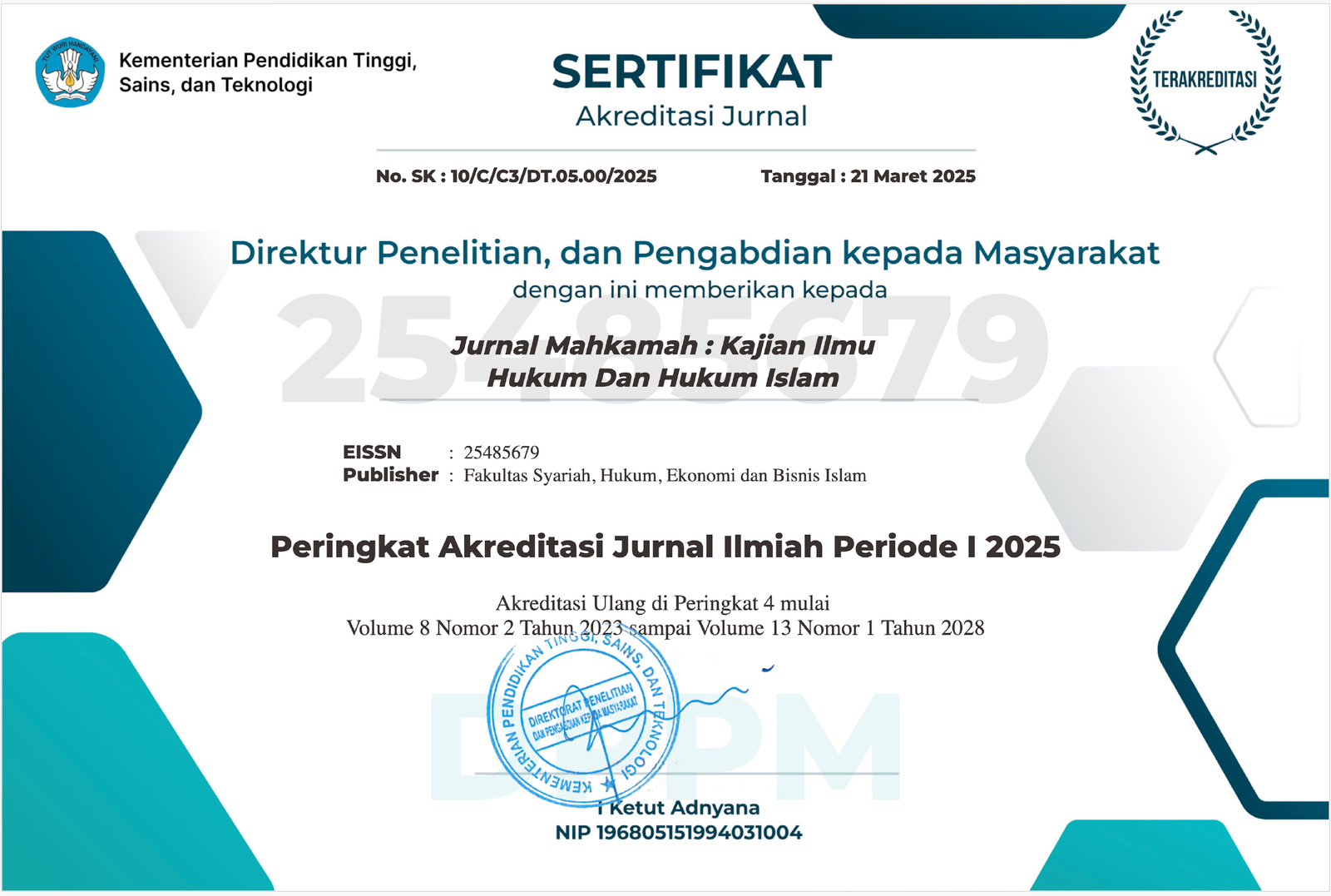Hukum Islam Dalam Memaknai Sebuah Perbedaan
DOI:
https://doi.org/10.25217/jm.v3i2.142Keywords:
Islam, DifferenceAbstract
Islam is a religion rahmatan lil'alamin, for that Islam can put the situation and conditions. Islam is the religion Hanīf, fairness and tolerance to their ikhtilaf (dissent). In terms of the causes and roots, there are two forms ikhtilaf (dispute), the deviation caused by the character and thought. Unjustified deviation is a deviation in aqidah matter of principle. Deviation is actually a little touch on the basic framework of worship. However, when the jurists began to enter the technical and operational principle that no deviation is irreversible appearance. Deviation can be justified is the deviation in trouble furu', and the issue is not the principle I'tiqad. Deviation different from the iftiraq, iftiraq according to the language comes from the word meaning mufarawah division and separation. Meanwhile, according to the terms of the scholars, iftiraq is out of the Sunnah and Jama'ah on one ushul (principal) of a judge actions ushul fundamental, both in aqidah or amaliyah.
References
Riffat Hasan tentang Isu Gender dalam Islam, Yogyakarta: Logung Pustaka, tt.
Asyhari Marzuki, Wawasan Islam Menggapai Kehidupan Qur’ani, Yogyakarta: Nurma Media Idea, 2003
http://www.jais.gov.my/article/adab-ikhtilaf-dalam-islam, diunggah pada tanggal 26 Januari 2017
http://ildahayati.com/2015/04/26/ikhtilaf-perbedaan-pendapat-ulama-dalam-hukum-islam/, diunggah pada tanggal 26 Januari 2017
Masdar F. Mas’ud, Islam dan Hak-Hak Reproduksi Perempuan,Edisi Refisi, cet. 1, Bandung: Mizan, 2010
M. Atho Muddzhar, Pendekatan Studi Islam dalam Teori dan Praktek, Yogyakarta: Pustaka Pelajar, 2011
Muhammad Amin Suma, Pluralisme Agama Menurut al-Qur’an Tela’ah Akidah dan Syari’ah, Jakarta: Pustaka Firdaus, 2001
Muhammad Qutthb, Kepribadian Islam Dalam Kancah Modernisasi, Surabaya: Risalah Gusti, 2004
Muhammad Warson Munawwir, Al-Munawwir, Surajaya: Pustaka Progressif, 1997
Pius A Partanto, Kamus Ilmia Populer, Surabaya: Arkola, 1994
Syaikh Abdul Aziz bin Abdullah bin Baz, Fatwa-Fatwa Seputar Terorisme, Jakarta: Pustaka al-Tazkia, 2004
Syaikhu, Perbandingan Madzhab Fikih, Yogyakarta: Aswaja Pressindo, 2004
Tarmizi Taher, Berislam Secara Moderat, Jakarta: Grafindo Khozanah Ilmu, 2007
Yaswirman, Hukum Keluarga, Jakarta: Rajawali, 2004
Yusuf Qaradhawi, Fikih Perbedaan Pendapat Antar Sesama Muslim, Jakarta: Robbani Press, 1990
…………………, Membedah Islam Ekstrim, Bandung: Mizan, 2001
Zubaidi, Islam Aturan dan Antar Peradaban, Yogyakarta: Al-Ruzz Media Group, 2007
Downloads
Published
How to Cite
Issue
Section
License
This work is licensed under a Creative Commons Attribution-ShareAlike 4.0 International License.
Authors retain copyright and grant the Jurnal Mahkamah : Kajian Ilmu Hukum Dan Hukum Islam right of first publication with the work simultaneously licensed under a Creative Commons Attribution License (CC BY-SA 4.0) that allows others to share (copy and redistribute the material in any medium or format) and adapt (remix, transform, and build upon the material) the work for any purpose, even commercially with an acknowledgment of the work's authorship and initial publication in Jurnal Mahkamah : Kajian Ilmu Hukum Dan Hukum Islam.
Authors are able to enter into separate, additional contractual arrangements for the non-exclusive distribution of the journal's published version of the work (e.g., post it to an institutional repository or publish it in a book), with an acknowledgment of its initial publication in Jurnal Mahkamah : Kajian Ilmu Hukum Dan Hukum Islam.
Authors are permitted and encouraged to post their work online (e.g., in institutional repositories or on their website) prior to and during the submission process, as it can lead to productive exchanges, as well as earlier and greater citation of published work (See The Effect of Open Access).









